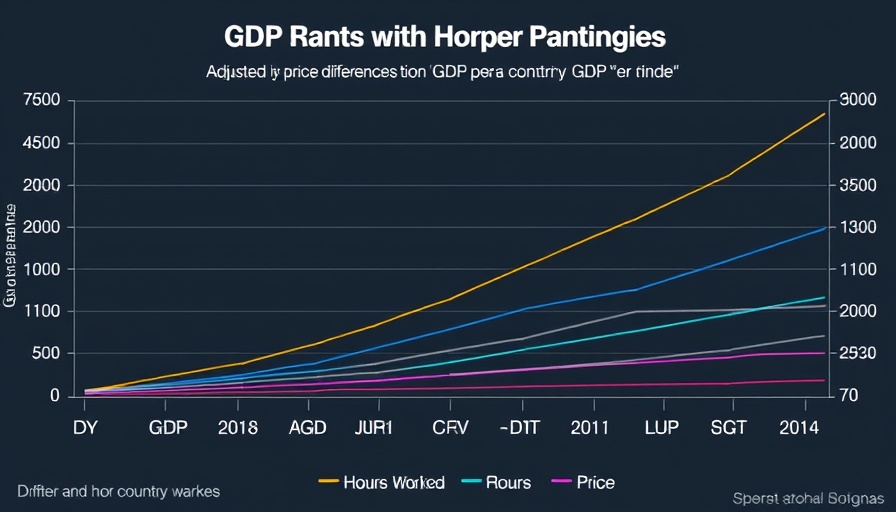
The Nuance of Tariffs and Their Economic Reach
Recent discussions around tariffs and inflation often reflect a misunderstanding of their actual impact on the economy. As Barry Ritholtz notes, America's vast, approximately $30 trillion economy means that imported physical goods only make up about 13% of consumer spending, which dilutes the perceived crisis caused by tariffs. For top wage earners in Philadelphia, this may seem abstract, but it carries significant implications.
Understanding Tariffs as a Tax on Consumption
Implementing tariffs essentially acts like an added tax on consumption—a dollar spent on tariffs translates to one less dollar available for other consumer expenditures. While a 10-20% tariff could mean anywhere between $350 billion and $700 billion in costs, it’s crucial to recognize that these numbers don’t lead to a recession on their own. Instead, these added costs may slow overall economic growth significantly.
The Ripple Effect on Corporate America
For wage earners who might be unaware, the tariffs impact not just consumers but corporate revenues as well. A decrease in corporate margins could lead to reduced profits, which may result in less hiring or even layoffs as companies adjust to the financial strain. Therefore, while initial effects might seem muted, the longer-term implications of tariffs could unfold over the next few quarters.
What This Means for Your Wallet and the Economy
As we wait for comprehensive data over the coming months, the real question remains: How will these tariffs affect consumer behavior and economic growth? With rising costs potentially squeezing consumer spending, it’s vital for affluent individuals, such as Philadelphia's top earners, to stay aware of these shifts. Understanding the underlying economic principles can empower you to make informed decisions during uncertain times.
Stay Informed: The Tariff Conversation
As the influence of tariffs continues to evolve, keeping an eye on developments can help you prepare financially. Be proactive about how these economic shifts might affect your spending habits and investments.
 Add Row
Add Row  Add
Add 




Write A Comment